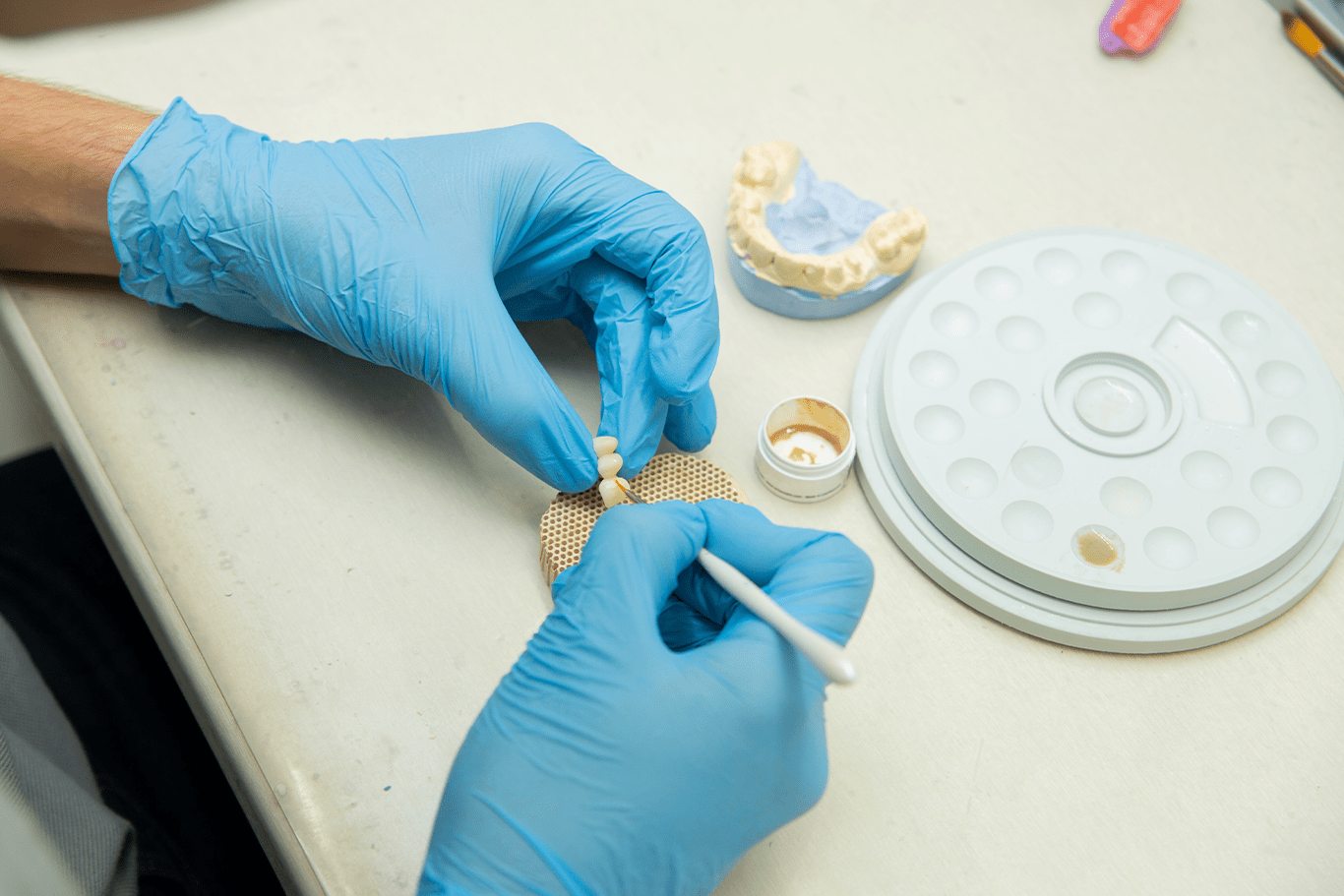Dental implants Frequently Asked Questions
Which type of dental restoration is truly the best? What constitutes the most cost-effective option? Or, what portion of the costs does health insurance cover? All these queries and more can be found in our Dental implants Frequently Asked Questions, providing valuable insights on this subject matter.

General
Which type of denture is best for you depends on your remaining teeth and the condition of your bone. Furthermore, it naturally depends on your own requirements and your financial scope.
Dentures and costs
From bridges and implant prosthetics to telescopic and precision attachment techniques, both the options and the costs for each dental prosthesis solution vary. The replacement of all teeth can reach a five-figure amount. If it’s only about replacing a single tooth, the costs are in the lower four-digit range.
Overall, the standard care is the most cost-effective and minimalist option in dental technology. In this case, health insurance covers up to 60 percent of the costs for adequate and necessary standard treatment.
Since 2005, a fixed subsidy system has been in place for dental prosthesis coverage by health insurance. This means that health insurance provides a contribution to the incurred costs, typically up to 60 percent.
The coverage of dental prosthesis costs depends less on the professional situation and more on the necessity of treatment. Unemployed individuals do not receive a subsidy from the job center. In the case of unemployment, the statutory health insurance participates with up to 50 percent in covering the costs of standard treatment. The individual is responsible for the remaining amount. The condition is that the treating doctor deems the therapy medically necessary.
The costs for dental prosthetics can be claimed as extraordinary expenses in the tax return. The condition is that the treatment was medically necessary and does not exceed a „reasonable“ amount.
Dental prosthesis in the case of a specific illness
For missing molars, both removable dentures and fixed crowns can be used. The most cost-effective option is the clasp denture, which is attached to the remaining teeth. The best treatment for you can be determined through a personal consultation. Feel free to call us at: 0 81 41 / 88 99 66.
Jawbone loss, also known as osteoporosis, is a common sign of aging. As a result, the bones become more susceptible to fractures. In such cases, fixed dental prosthetics are usually necessary. If there is insufficient jawbone for implants, it is typically replaced with the body’s own bone. The new bone material grows in the desired location, providing a secure anchor.
Periodontitis is a chronic inflammation of the tooth-supporting apparatus, which includes the gums, alveolar bone, root cementum, and periodontal ligament. The disease is caused by bacterial inflammation of dental plaque.
For mild to moderate periodontitis, dental implants or bridges may suffice. However, in the case of a severely compromised periodontal condition, implants are used.
Cleaning Dental Prosthesis
Dental prosthetics should be cleaned at least twice daily, mirroring the care regimen for natural teeth. This practice helps prevent unsightly build-up and the colonization of harmful bacteria.
Note: While cleaning agents for dental prosthetics are readily available in drugstores and pharmacies, and are listed in their Dental implants Frequently Asked Questions, they typically contain chemicals that can degrade the prosthetic material. For cleaning dental prosthetics, a conventional toothbrush and toothpaste are sufficient.

